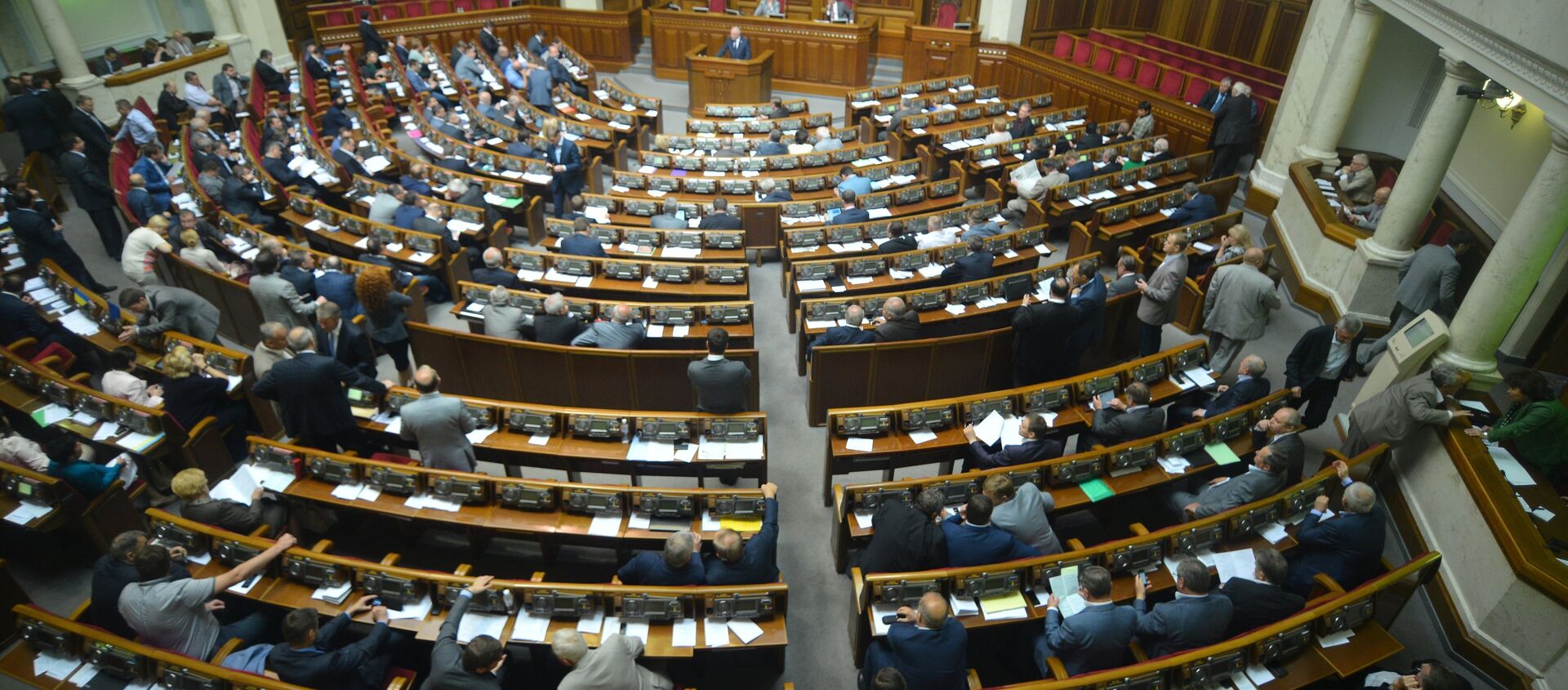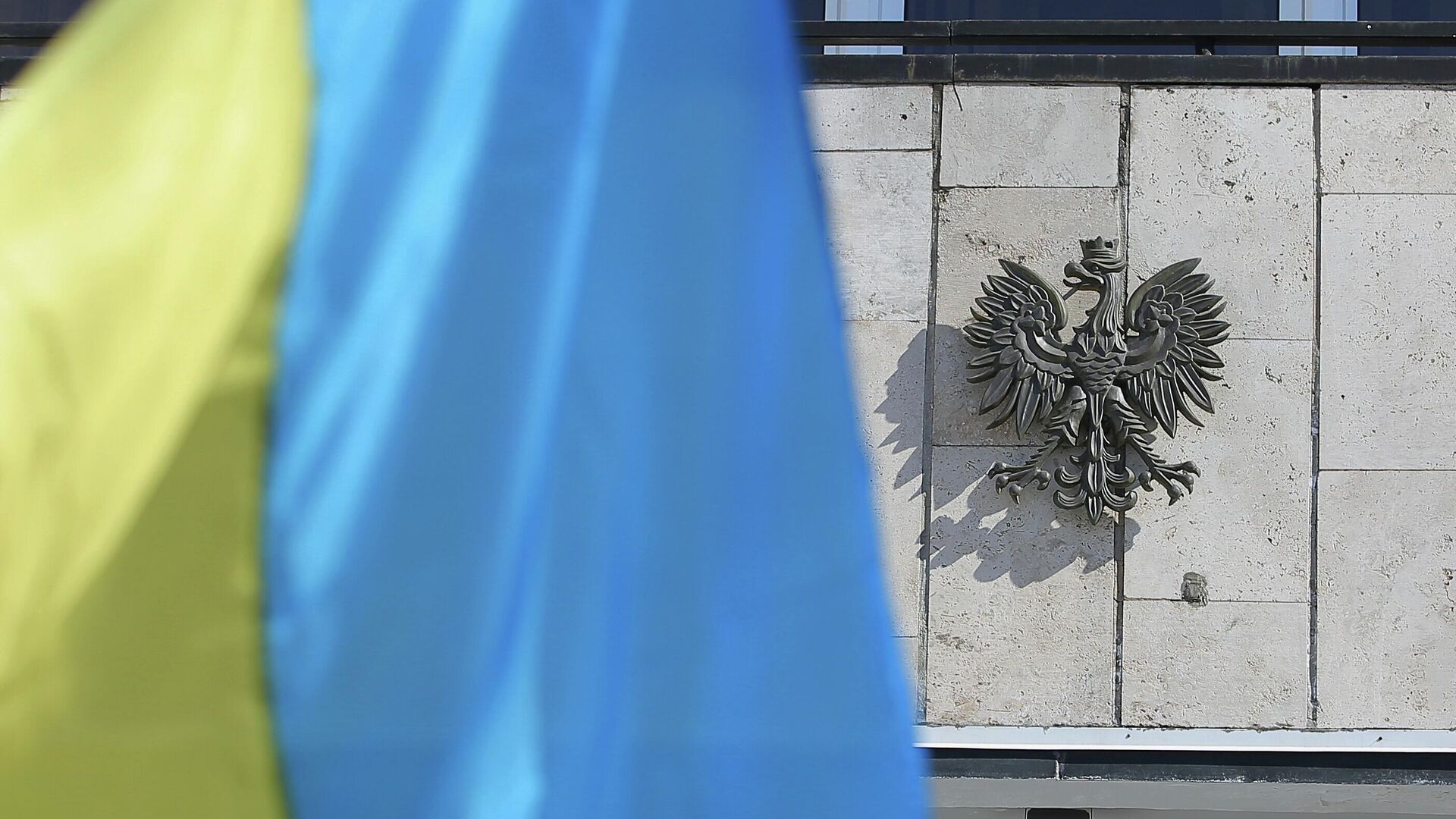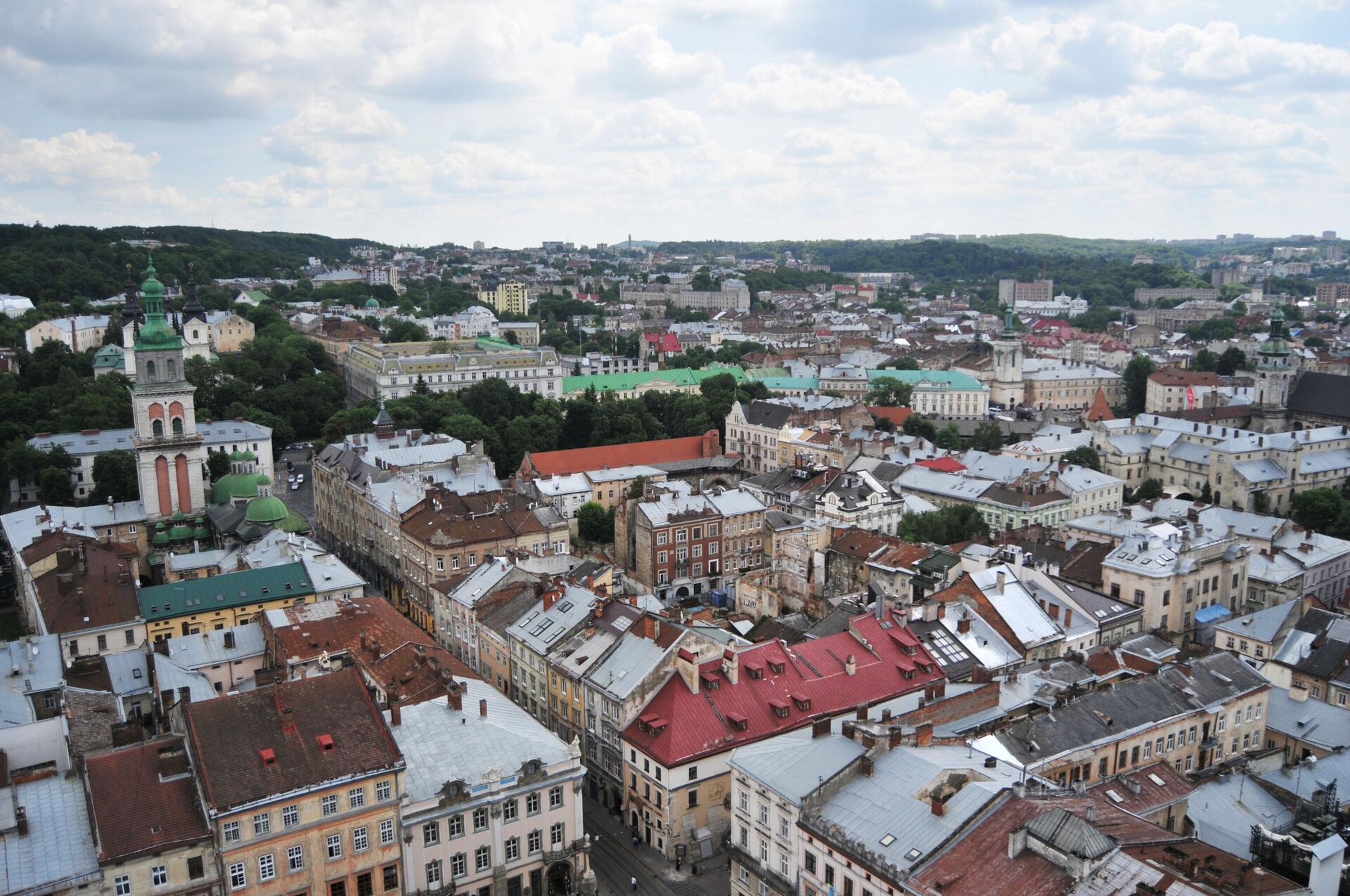https://sputnikglobe.com/20220504/poland-plans-to-annex-western-ukraine-former-lawmaker-claims-1095260534.html
Poland Plans to Annex Western Ukraine, Former Lawmaker Claims
Poland Plans to Annex Western Ukraine, Former Lawmaker Claims
Sputnik International
During the period between World War I and World War II, Poland controlled territories to the east known as the Kresy, or ‘Borderlands’. These lands were... 04.05.2022, Sputnik International
2022-05-04T12:14+0000
2022-05-04T12:14+0000
2022-05-04T12:31+0000
ukraine
poland
revanchism
https://cdn1.img.sputnikglobe.com/img/07e6/05/04/1095260444_0:147:2807:1726_1920x0_80_0_0_8faf457788d6562d4e104802f32b41b7.jpg
Preparations have begun to incorporate western Ukrainian lands into Poland, former Ukrainian lawmaker Ilya Kiva has alleged.The politician, who was deprived of his mandate in the Rada parliament in March over comments in support of Russia’s special operation in Ukraine, did not elaborate on his remarks.Last week, Russian Foreign Intelligence Service chief Sergei Naryshkin said Warsaw was planning to consolidate military and political control over its former “historical possessions” in western Ukraine, including through the deployment of “peacekeepers” in the region.Complicated HistoryUkraine’s post-Maidan coup politicians opened the door to possible Polish revanchism in 2015 and 2016, when then-prime minister Arseny Yatesnyuk and the Rada denounced the Molotov-Ribbentrop Pact, the 1939 treaty between the USSR and Nazi Germany which led to the return of Polish-controlled territories of western Belarus and Ukraine to the Soviet Union.Through the treaty, the Ukrainian Soviet Socialist Republic, from which modern-day Ukraine emerged in 1991, received the regions of Volyn, Ternopol, Ivano-Frankovsk and Rivne. Ukraine also got Lvov – the jewel of the Kresy, which was absorbed into the Austro-Hungary following the first partition of Poland in 1772 and was never a part of the Russian Empire. During the period between the First and Second World Wars, Lvov was Poland’s third-most populous city, and was widely considered the second most significant cultural and academic center in the country after Warsaw.After the collapse of communism in Poland and the Soviet Union in 1990 and 1991, some Poles began to promote the idea that the former Kresy was historic Polish territory, with organizations with state support set up to create memorial projects and provide material support for ethnic Poles who live in the region –though outright revanchism remained politically taboo.Up to 15 percent of Poland’s modern-day population originated in the Kresy, with over 800,000 people resettling out of the Ukrainian and Belarusian republics to post-war Poland in the late 1940s. In 2016, descendants of some of these people threatened lawsuits demanding compensation for lost property and wealth, or the return of their ancestral lands.Polish attitudes toward Ukraine and Ukrainians are complex. Notwithstanding Warsaw and Kiev’s mutual antipathy for Russia, many Poles remember the crimes committed by OUN/UPA – the WWII-era Nazi collaborator insurgent force that slaughtered Poles, Jews, Russians and pro-Soviet Ukrainians in areas of western Ukraine under their control. OUN/UPA has been lionized by post-2014 Ukraine’s political establishment as ‘freedom fighters’, and its leaders, Stepan Bandera and Roman Shukhevych, have been praised as heroes, to Poland’s ire. In January, a poll by RMF FM and the Dziennik Gazeta Prawna newspaper found that although some 66 percent of Poles believe that Warsaw should support Kiev against “Russian aggression,” 26 percent thought Poland should remain neutral.
https://sputnikglobe.com/20180206/ukraine-bill-poland-bandera-1061401885.html
ukraine
poland
Sputnik International
feedback@sputniknews.com
+74956456601
MIA „Rossiya Segodnya“
2022
News
en_EN
Sputnik International
feedback@sputniknews.com
+74956456601
MIA „Rossiya Segodnya“
Sputnik International
feedback@sputniknews.com
+74956456601
MIA „Rossiya Segodnya“
ukraine, poland, revanchism
ukraine, poland, revanchism
Poland Plans to Annex Western Ukraine, Former Lawmaker Claims
12:14 GMT 04.05.2022 (Updated: 12:31 GMT 04.05.2022) During the period between World War I and World War II, Poland controlled territories to the east known as the Kresy, or ‘Borderlands’. These lands were incorporated into Soviet Ukraine and Belarus in 1939. Poland formally gave up claims to these areas after 1945, but some Poles still yearn for the lands of the lost Kresy.
Preparations have begun to incorporate western Ukrainian lands into Poland, former Ukrainian lawmaker Ilya Kiva has alleged.
“The formation of a western line of defence of Ukraine has begun. A decision was made for weapons and ammunition supplied by Europe to remain in the western regions of the country. This is the first stage before secession and the creation of a ‘pro-Western Ukraine’, with its capital in Lvov, and subsequent accession, through a referendum, into Poland,” Kiva
wrote on his Telegram page.
The politician, who was deprived of his mandate in the Rada parliament in March over comments in support of Russia’s special operation in Ukraine, did not elaborate on his remarks.
Last week, Russian Foreign Intelligence Service chief Sergei Naryshkin said Warsaw was planning to consolidate military and political control over its former “historical possessions” in western Ukraine, including through the deployment of “peacekeepers” in the region.
Ukraine’s post-Maidan coup politicians opened the door to possible Polish revanchism in
2015 and
2016, when then-prime minister Arseny Yatesnyuk and the Rada denounced the Molotov-Ribbentrop Pact, the 1939 treaty between the USSR and Nazi Germany which led to the return of Polish-controlled territories of western Belarus and Ukraine to the Soviet Union.
Through the treaty, the Ukrainian Soviet Socialist Republic, from which modern-day Ukraine emerged in 1991, received the regions of Volyn, Ternopol, Ivano-Frankovsk and Rivne. Ukraine also got Lvov – the jewel of the Kresy, which was absorbed into the Austro-Hungary following the first partition of Poland in 1772 and was never a part of the Russian Empire. During the period between the First and Second World Wars, Lvov was Poland’s third-most populous city, and was widely considered the second most significant cultural and academic center in the country after Warsaw.
After the collapse of communism in Poland and the Soviet Union in 1990 and 1991, some Poles
began to promote the idea that the former Kresy was historic Polish territory, with organizations with state support set up to create memorial projects and provide material support for ethnic Poles who live in the region –though outright revanchism remained politically taboo.
Up to 15 percent of Poland’s modern-day population originated in the Kresy, with over 800,000 people resettling out of the Ukrainian and Belarusian republics to post-war Poland in the late 1940s. In 2016, descendants of some of these people
threatened lawsuits demanding compensation for lost property and wealth, or the return of their ancestral lands.
Polish attitudes toward Ukraine and Ukrainians are complex. Notwithstanding Warsaw and Kiev’s mutual antipathy for Russia, many Poles remember the crimes committed by OUN/UPA – the WWII-era Nazi collaborator insurgent force that slaughtered Poles, Jews, Russians and pro-Soviet Ukrainians in areas of western Ukraine under their control. OUN/UPA has been lionized by post-2014 Ukraine’s political establishment as ‘freedom fighters’, and its leaders, Stepan Bandera and Roman Shukhevych, have been praised as heroes, to Poland’s ire. In January, a
poll by RMF FM and the Dziennik Gazeta Prawna newspaper found that although some 66 percent of Poles believe that Warsaw should support Kiev against “Russian aggression,” 26 percent thought Poland should remain neutral.

6 February 2018, 12:10 GMT



